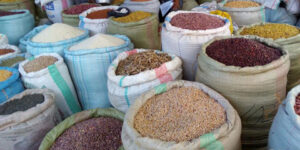
Dar es Salaam. The East African Business Council (EABC) is urging EAC Partner States to adopt a unified approach in negotiating trade agreements with third parties.
Instead of pursuing separate bilateral or multilateral trade deals, the EABC recommends that Partner States negotiate collectively as a bloc to strengthen regional integration and enhance bargaining power on the global stage, according to a statement shared yesterday.
Acting Executive Director of the EABC, Mr Adrian Raphael Njau, emphasised that a coordinated EAC strategy in external trade would foster trust among Partner States, reinforce a common trade policy, and ensure the consistent implementation of the EAC Common External Tariff (CET).
“The EAC Customs Union Protocol mandates coordinated external trade relations to implement a unified external trade policy. The CET, a cornerstone of the EAC Customs Union, ensures uniform tariffs on goods entering the EAC region from outside,” he explained.
However, there has been a growing trend of individual Partner States entering into bilateral agreements with third parties, raising concerns among the private sector over potential distortions to the CET and mistrust among members.
“Separate tariff concessions by individual Partner States can lead to trade deflection, prompting others to restrict free circulation of goods,” said Mr Njau.
While Article 37(4) of the Customs Union Protocol allows Partner States to negotiate agreements independently, these must align with the Protocol’s provisions and not conflict with the EAC’s common trade policies. To date, EAC Partner States have jointly negotiated and are implementing two significant trade agreements with third parties: the African Continental Free Trade Area (AfCFTA) and the COMESA-EAC-SADC Tripartite Free Trade Area (TFTA). These agreements have enabled tariff liberalisation through joint offers based on the EAC CET. However, collective negotiations with non-African partners have faced challenges.
A notable example is the EAC-EU Economic Partnership Agreement (EPA), which took seven years to negotiate (2007–2014).
Although the EU signed the agreement in 2016, only Kenya and Rwanda signed it in September of that year, with Kenya ratifying it shortly after. Due to delays in regional consensus, Kenya negotiated a separate Kenya-EU EPA, which was signed in December 2023 and came into force in April 2024.
This bilateral deal closely mirrors the original EAC-EU EPA, with provisions allowing other EAC states to join when ready. Following the UK’s withdrawal from the EU, the UK sought to establish a continuity trade agreement with the EAC.
However, most EAC countries felt the timeframe was too short and requested a transitional period. Only Kenya, classified as a non-Least Developed Country (non-LDC), proceeded with a separate Kenya-UK EPA, signed in December 2020 and ratified in March 2021.
This was necessary as Kenya could not benefit from the duty-free, quota-free (DFQF) access provided to LDCs under the EU/UK Generalised Scheme of Preferences (GSP). Mr Njau noted that trade agreements must be sensitive to developmental disparities within the EAC.
“The dual classification of EAC Partner States should be seen as a strength, not a weakness, in negotiations with third parties,” he said. He called for a holistic approach that includes addressing supply-side constraints, not just market access.
He said under the bilateral EPAs, Kenya has committed to progressively eliminate tariffs on all but sensitive products. In contrast, other EAC countries continue to access EU and UK markets through non-reciprocal GSP schemes.
However, these schemes are underutilised due to stringent rules of origin and the risk of preference withdrawal, highlighting the fragility of unilateral arrangements. Furthermore, while Kenya applies the 2017 version of the CET in its bilateral deals, other EAC states have transitioned to the 2022 CET version, which introduced a fourth tariff band (35pc) for finished goods readily available in the region.
The new structure aims to better support regional industries, but raises concerns about consistency in external tariff application. Besides the current EPA complexities, EAC Partner States face increasing demand from global players for trade agreements.
These include the EAC-US Trade and Investment Framework Agreement (TIFA), the Kenya-UAE Comprehensive Economic Partnership Agreement (CEPA), and Free Trade Area (FTA) negotiation requests from China, Turkey, Singapore, Pakistan, Indonesia, and the Gulf Cooperation Council (GCC).
He said, given the current challenges and global protectionist trends, the EABC recommends the following actions, including assessing existing EPAs to ensure compatibility with EAC obligations and the AfCFTA, and collectively reviewing and negotiating EPAs with the EU and UK to uphold regional commitments to a unified external trade policy.














